International Women’s Day 2025 Webinar ‘Accelerate Action!’
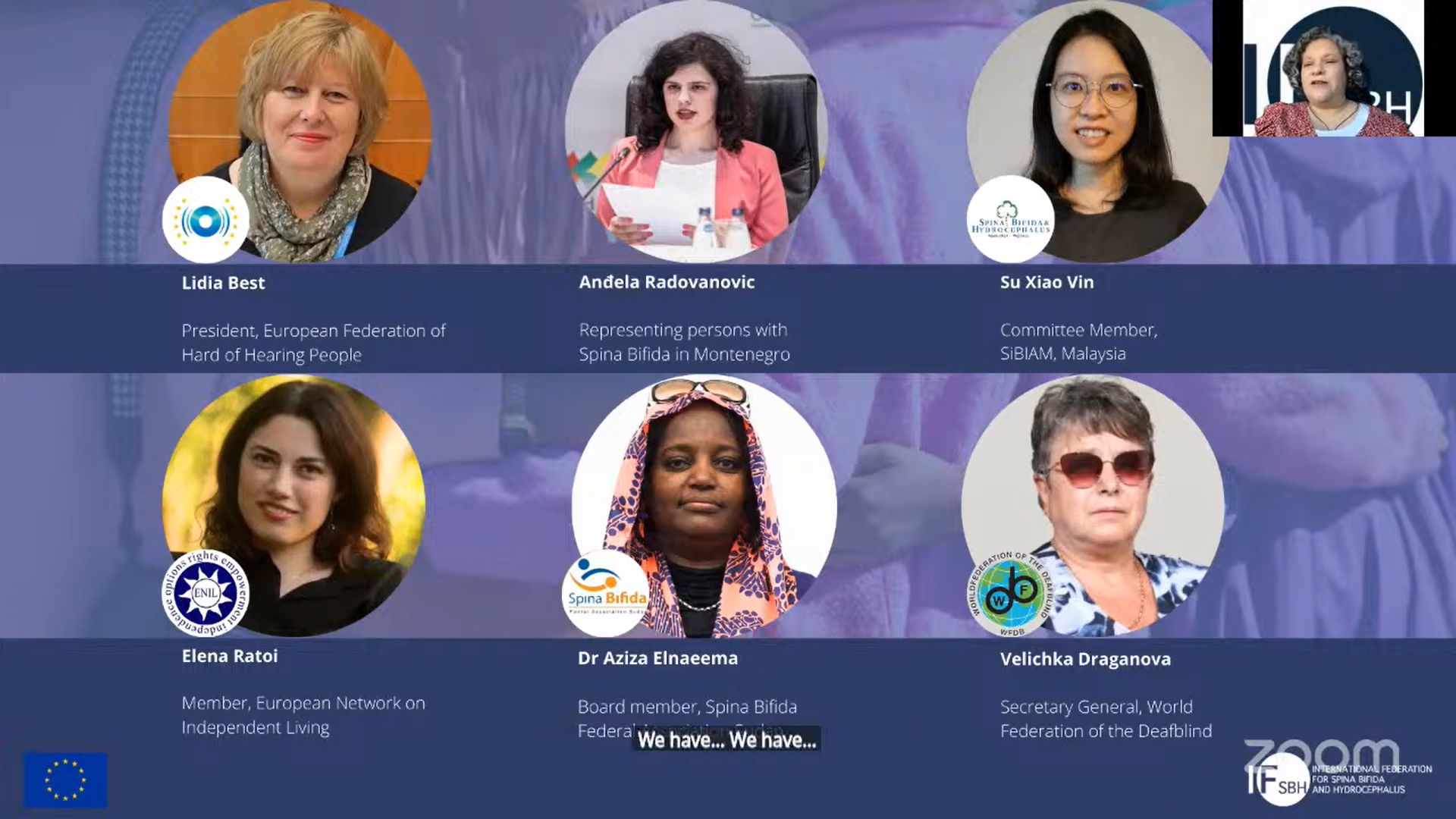
On 7 March 2025, IF in collaboration with the Spina Bifida and Hydrocephalus Association Malaysia (SiBIAM), the European Federation of Hard of Hearing People (EFHOH), the European Network on Independent Living (ENIL), the Spina Bifida Federal Association Sudan, and the World Federation of the Deafblind (WFDB), organised the International Women’s Day Webinar ‘Accelerate Action’.
This event provided a platform for women from diverse disability communities across the globe to share knowledge and experiences. Women and girls with disabilities face a dual disadvantage due to both gender and disability. This year’s theme ‘Accelerate Action’, focused on advancing accessibility, women’s empowerment, inclusive education, independent living, protection and safety during conflict and crisis, and gender equality.
At the start of the webinar welcoming words were shared by the IF President Victoria Sandoval, also the moderator of the International Women’s Day Webinar. In her introduction, Victoria highlighted the global aim of this annual awareness day and campaign, emphasising the unique strengths women have in showing solidarity with one another. She underscored that, in challenging times, women must stand even stronger in the fight for their rights and dignity, striving to achieve common goals and flourish in life.
The first speaker, Lidia Best (President, EFHOH) highlighted the accessibility challenges that create significant difficulties in the lives of hard of hearing people. Lidia mentioned that her members often rely on captioning and assistive devices to access information on political participation. However, the lack of accessibility in this area presents barriers to women’s political representation. Furthermore, these accessibility gaps can place individuals in dangerous situations. According to a recent survey by EFHOH, women face gender- and disability-based violence at home, in public services, and in the workplace due to communication barriers. Lidia stressed the need for government-funded hearing aids, stronger anti-discrimination laws, reasonable accommodation in the workplace and education, as well as awareness-raising campaigns to combat stigma.
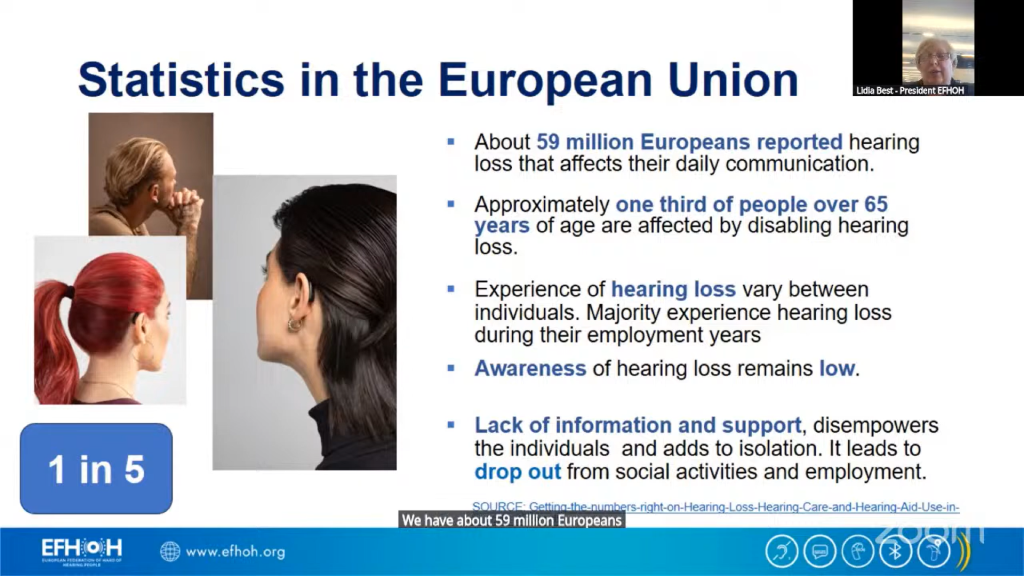
The second speaker, Anđela Radovanović (SBH representative, Montenegro). Anđela proposed several action points aimed at contributing to the empowerment of women with disabilities. First and foremost, she emphasised the need to shift the perspective from viewing persons with disabilities as lifelong patients, advocating for a move from the medical model to a human rights-based approach. Anđela called for the recognition of the potential of women and girls with disabilities, urging society to create opportunities for them to nurture and showcase their talents and abilities. She highlighted the crucial role that governments, families, civil society, and the media play in ensuring women with disabilities are seen and treated as equals. Through collective effort, these stakeholders can help dismantle barriers and pave the way for a more inclusive society.
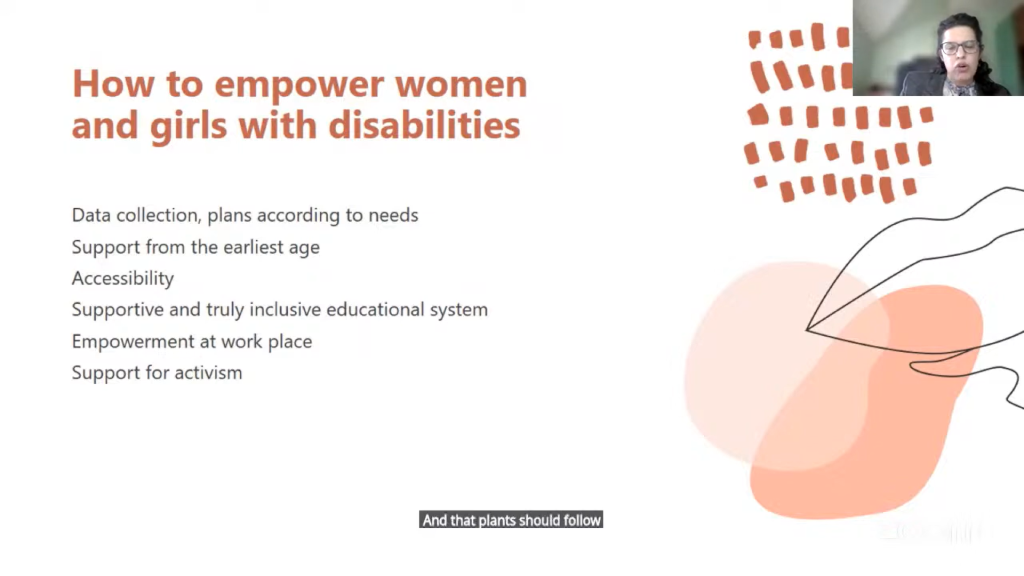
The third speaker, Su Xiao Vin (committee member, SiBIAM) explored how to accelerate action on inclusive education. She identified several key issues that need to be addressed while advocating for inclusive education. From a global perspective, access to education for women is limited, and women with disabilities face even greater marginalisation. Su Xiao Vin mentioned that women, who are able to study, often struggle to succeed academically because teaching methods are not adapted to meet their needs. Additionally, the lack of curriculum accessibility and inadequate infrastructure create significant barriers to obtaining education. It is therefore important for educational facilities to be accessible, safe, and disability-friendly.
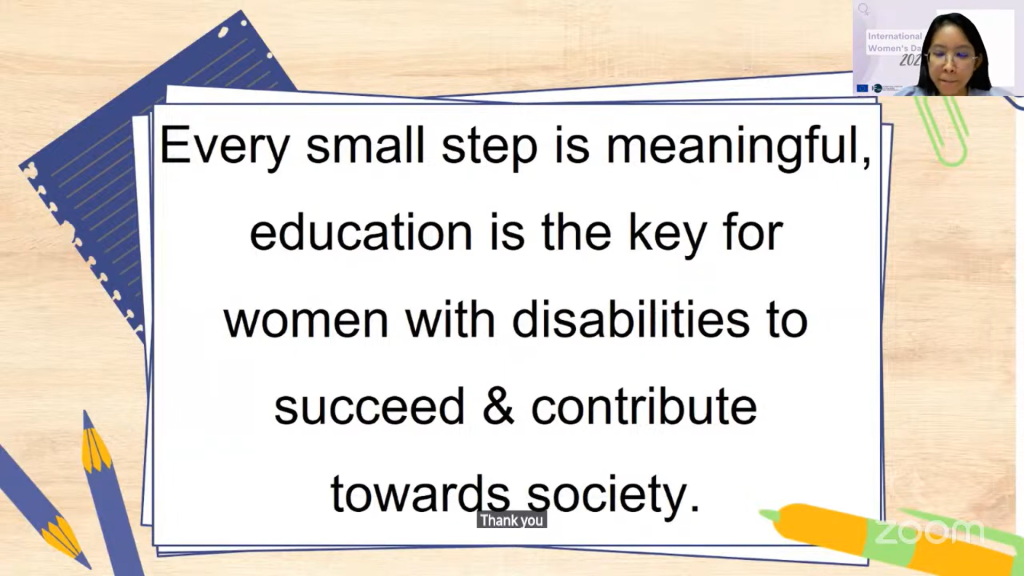
Independent living is a fundamental right that enables persons with disabilities to fully participate in society. The fourth speaker, Elena Ratoi (member, ENIL) highlighted that barriers to independent living include economic dependence, inaccessible infrastructure, discrimination in employment, safety concerns, and limited access to healthcare. As a solution, Elena proposed enhancing support services, improving accessibility, and increasing the representation of women with disabilities in leadership and decision-making roles. She emphasised that everyone has a role to play in accelerating action on independent living.
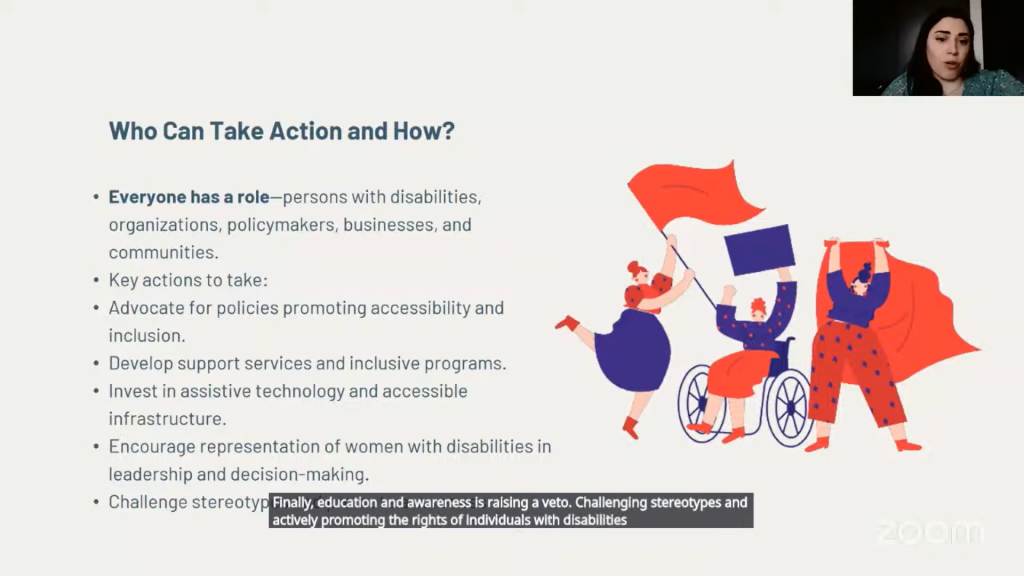
Gender equality is a fundamental value and policy objective that asserts a person should not be judged based on their gender. The fifth speaker, Velichka Draganova (secretary general, WFDB) shared that in her opinion, gender equality leads to more job opportunities and higher productivity. The year 2024 marks the 40th anniversary of the adoption of the UN Convention on the Elimination of All Forms of Discrimination Against Women (CEDAW). Velichka emphasised that ensuring the rights and well-being of women and girls, including those with disabilities, is crucial for building prosperous and equitable economies and ensuring an environmentally sustainable planet for future generations.
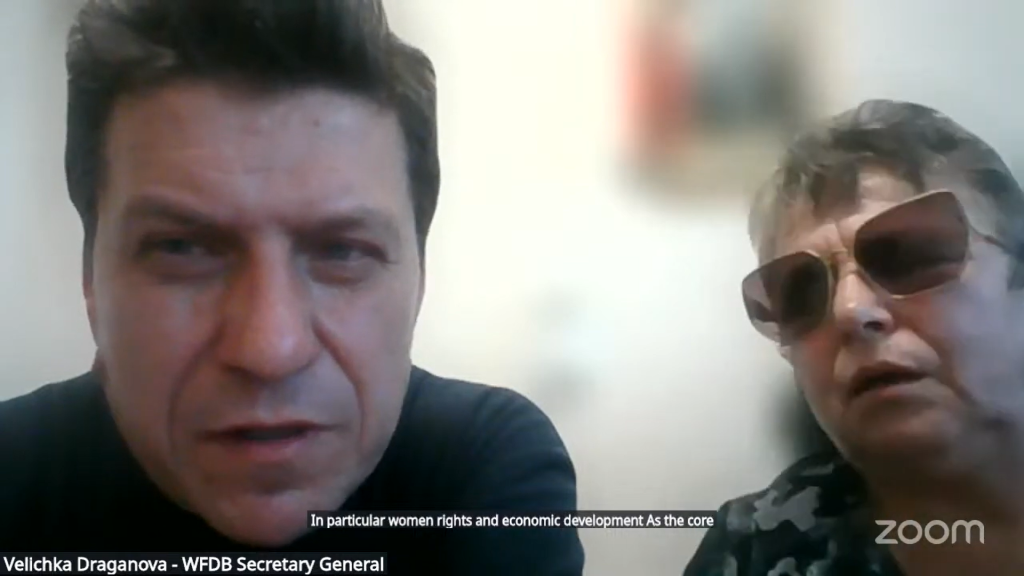
The sixth speaker, Dr Aziza Elnaeema (board member, Spina Bifida Federal Association Sudan & IF) shed light on the situation for women living in areas of conflict and crisis. Dr. Elnaeema explained that women facing war endure increased levels of trauma, disruption of family structures, social isolation, physical displacement, prolonged stays in refugee camps, and mental health challenges. Especially in crisis situations, women with disabilities are at a higher risk of harassment and sexual violence. Dr. Elnaeema stressed the importance of ensuring access to health services, designing and implementing essential interventions, and increasing the representation of women in decision-making processes to address these vulnerabilities.
Conclusion
The speakers of the International Women’s Day Webinar emphasised that as a society, there is a need to accelerate actions, leaving no women behind. Ensuring the inclusion of women with disabilities in decision making processes on all levels, reduces risks of for instance discrimination and violence. The speakers in this webinar highlighted different ways in which women with disabilities can be provided with equal opportunities to participate on an equal basis with others in all aspects of the society.
Here are some main take-aways from the webinar:
- Accessibility: Urgent need for government-funded assistive devices, anti-discrimination laws, workplace and educational accommodations, and awareness campaigns.
- Empowerment: Shift from a medical model to a human rights-based approach, recognising and nurturing the potential of women with disabilities.
- Inclusive Education: Adapt teaching methods, ensure accessible curricula, and improve infrastructure for women with disabilities.
- Independent Living: Enhance support services, improve accessibility, and increase representation of women with disabilities in leadership.
- Gender Equality: Promote equal opportunities and productivity through gender equality, ensuring inclusive policies for women with disabilities.
- Conflict and Crisis: Address heightened risks faced by women with disabilities, improve access to health services, and increase their representation in decision-making.
In summary, this webinar highlighted key areas where immediate action is needed to support women and girls with disabilities. IF calls upon all relevant stakeholders to support these key take-aways in accelerating actions to create a more equitable and accessible future for everyone. IF remains committed to fostering ongoing dialogues and collaborations to address these challenges. For this, we welcome your input and collaboration.
You can watch the recording of the webinar here.

